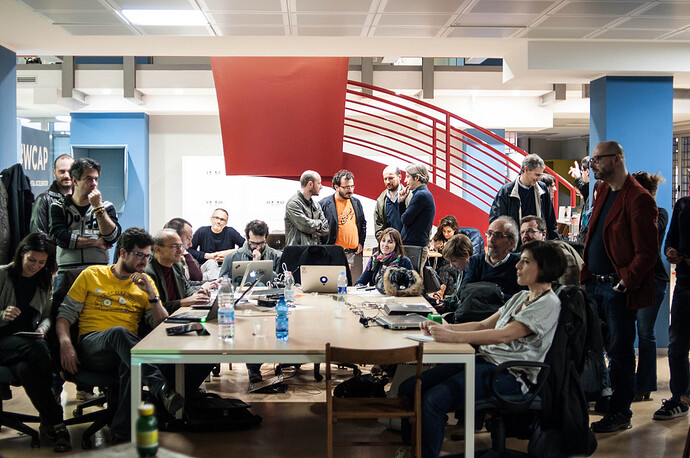In an age of big data and algorithms, Edgeryders has chosen to walk the path of human-powered collective intelligence. We believe collective intelligence is interactional: smart, intellectually honest people are more likely to get closer to an accurate analysis, or to come up with a workable plan for something, when they are in conversation with each other. We exploit the property of open interaction to weed out errors and personal biases; this effect gives rise to Wikipedia’s famous self-correcting properties.
Over the years, we keep being awestruck by the power of result-oriented conversations as a knowledge engine. People will turn a problem in their head, make conjectures, explore them, use each conjecture to quickly generate alternative ones and explore them too, look for supporting evidence to reference, try small experiments, involve others. They are unafraid of exploring poorly defined questions, if they are interesting enough (“how can we defeat the tyranny of the mortgage?”); in fact, they can help define it, and even turn the original question on its head (“what you are really asking is XYZ”). It’s uncanny.
Here’s the problem: on the Internet (and in a friendly-but-tough, result-oriented social environment like Edgeryders) an open conversation very quickly becomes too large to keep in any individual human head. Since inception, we have needed ways to summarize the point of view not of individuals, but of the community in conversation, and to do it in a scientifically sound, accountable way.
Hence, ethnography. Ethnographers have the appropriate tools for the job. Just as importantly, they have the right research ethos for Edgeryders: ethnography’s definitional attribute is “no research on a group without encoding the point of view of the group”. This encodes a healthy degree of respect for the community trying to solve a problem, or to address a research question. We like that. Too many researchers have an extractive attitude towards “the crowd”, seen as a rightless volunteer in collective intelligence exercises.
OpenCare, too, has found its ethnographer. I am proud to announce that Amelia Hassoun will be working with us on this project. Amelia is a doctoral candidate at the University of Minnesota; she has shown competence, integrity and an interest for the (still vaguely defined) vision of Massively Open Online Ethnography we are working towards. I am excited and honoured to welcome her on the team.
This is Amelia’s “hello world” post on Edgeryders. Go say hello back.
Photo credit: Marco Giacomassi
